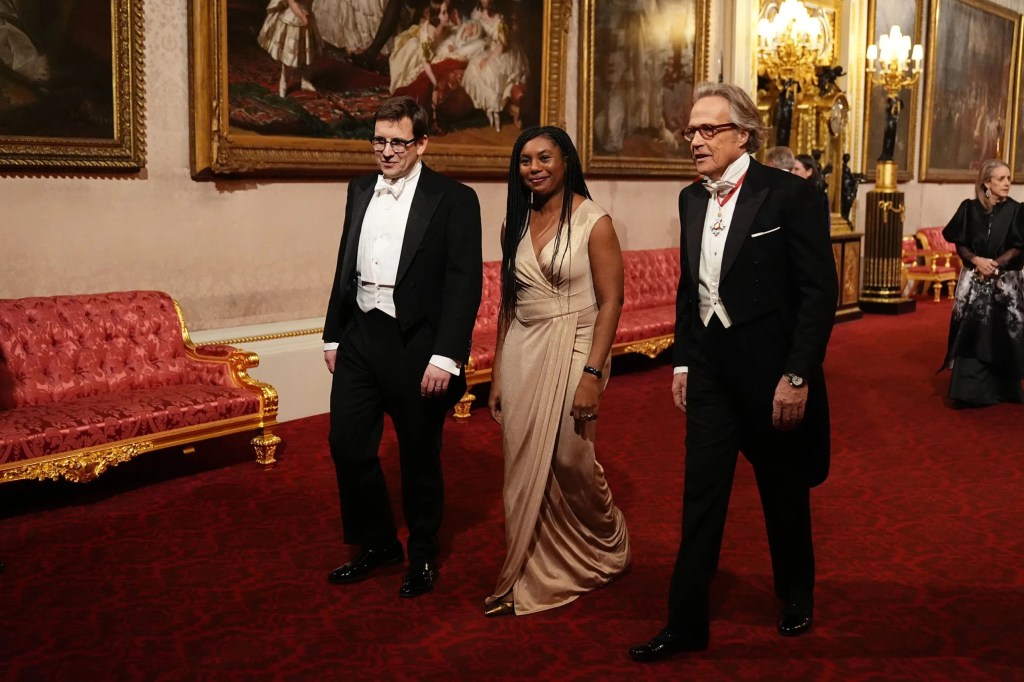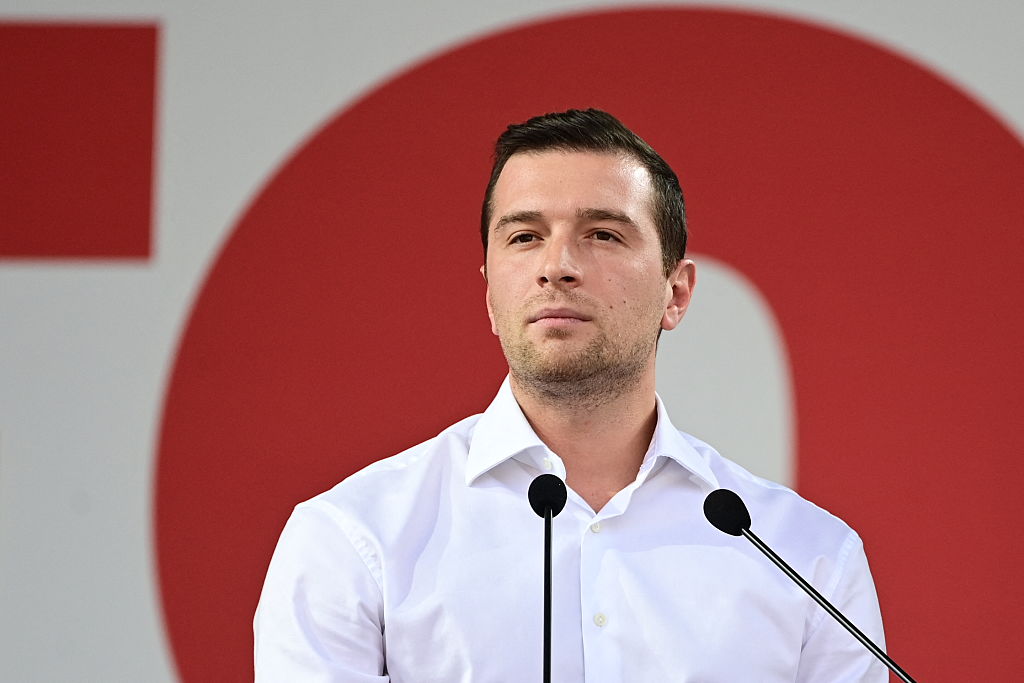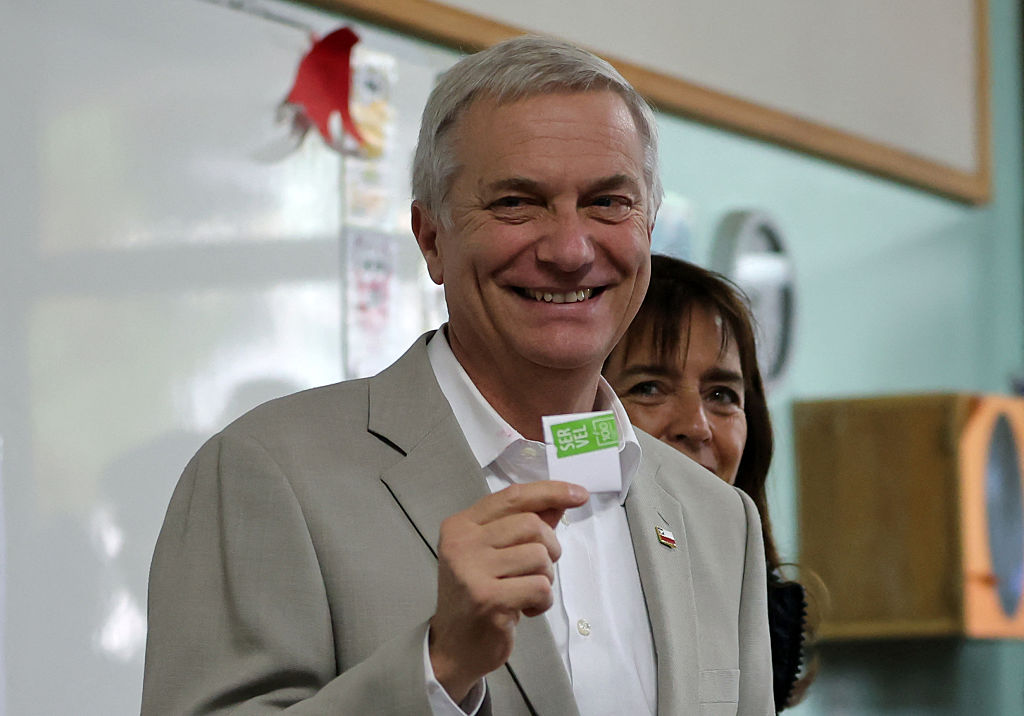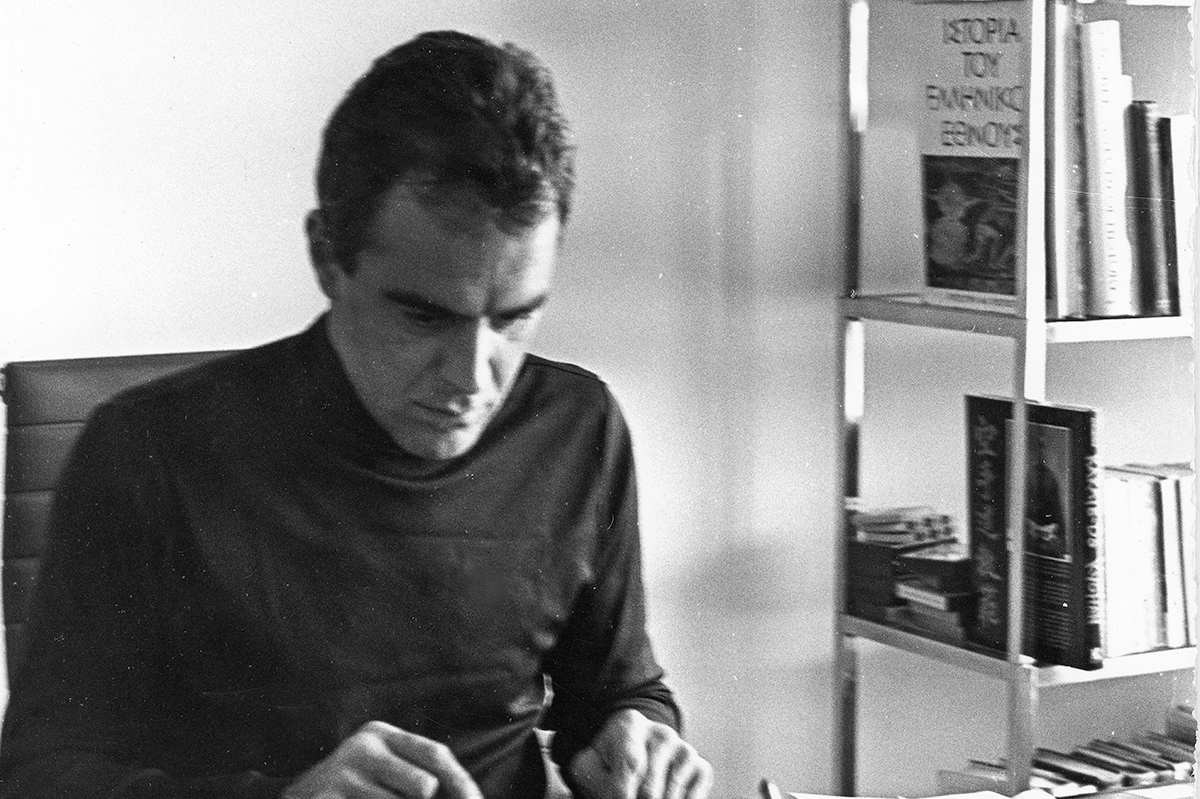London
“It’s like a startup,” Kemi Badenoch explains of her new job, as she plumps down on a sofa in the Spectator offices. A month into her tenure as Conservative Party leader and she is discovering the upsides to being out of power. “Everyone around me in the leader of the opposition office is there because of me — not because they happened to be there when I got there. That changes the dynamic quite a bit.”
She says the “biggest difference” so far between being a secretary of state and leader of the opposition is that the role is “actually a lot less lonely.” “We are creating an office in our image and our mindset and that’s different to going into the civil service and government departments.”
The man helping her to shape that image is her chief of staff, Lee Rowley, the former North East Derbyshire MP who was one of the 175 Tories to be booted out of the Commons at the last election. “He is pretty much my closest friend in politics, so I have my friends with me,” Badenoch says. “I have always wanted to make copies of myself — you know, when you are so busy — and it’s like having another me there. It’s absolutely brilliant.”
What does a day in Badenoch’s new life look like? Back-to-back meetings? Policy research? Time to decompress?
“What’s decompressing, what’s that?” she grins. Does she break for lunch? “What’s a lunch break? Lunch is for wimps. I have food brought in and I work and eat at the same time. There’s no time… Sometimes I will get a steak… I’m not a sandwich person, I don’t think sandwiches are a real food, it’s what you have for breakfast.” Soggy bread is a no-no: “I will not touch bread if it’s moist.”
Badenoch may be keeping busy, but that doesn’t mean voters — or her MPs — should expect detailed policy announcements any time soon. “People keep saying ‘Where are your policies?’. I feel like I am going to be opening a restaurant in four years’ time and people are demanding to see the menu right now,” she says. “Trying to get people to be patient, I think, is one of the big challenges. People want instant gratification.”
We try again. If her leadership were a restaurant, does she at least have an inkling of the type of food it would serve? “There’ll be lots of red meat,” she says. “This will be a Conservative restaurant but there’ll be dining out. It will be professional, there will be standards. It’s going to look nice. It’s going to be somewhere that you’ll be proud to go to and that is something that I really want to engender. I want people to be proud of associating with the Conservative Party.”
She says her job between now and the next general election is to rebuild the Tory brand. That means getting young people to join the party. “A lot of young people are terrorized for being Conservatives and we have to defend them. And that’s one of the things that I will want to do, to bring back the fun. If you don’t have the young you don’t have the fun, that’s for sure.”
On policy, several commissions will soon get under way. “Alex Burghart [in the Cabinet Office brief] is working on the framework but I’m taking my time in making sure we think about how you deliver a policy commission that’s going to get results,” she says. Two models are being looked at: “Mrs. Thatcher’s and David Cameron’s, which I worked on back in 2005-06, the one on globalization.”
Badenoch is looking around the world for inspiration. “I am very interested in how radical you can be on the right, [such as] Javier Milei in Argentina. I remember when he had those white boards and he was ripping everything down and he was saying ‘Afuera! Afuera!‘. I loved it but I was thinking, ‘Would that work? I don’t think people will like that.’ So it isn’t just the fact that he’s been doing it, but that it is working” On migration, she cites Italy’s Giorgia Meloni as an example to learn from (“We have a mutual admiration society”).
She recently went to America, where she met J.D. Vance, the incoming vice president. “It’ll be interesting to see what the Donald Trump-Elon Musk partnership is going to deliver with government efficiency,” she says. “My diagnosis of what is wrong with our country is that we have stopped being entrepreneurial and become bureaucratic. The middle class has changed from people who grow things, like farmers, or people who build or make things. It’s skewed towards people who live off the law in one form or another, whether that’s regulation, compliance in banking, HR or government contracts.”
A radical approach, she says, is required on immigration even if she has stopped short of calling for Britain to leave the ECHR. “I use the phrase ‘liberalism has been hacked’ — and when I say liberalism, I mean classical liberalism, not the American hard-left liberalism. Many of the issues that people call ‘woke’ — it’s really socialism and communism wearing the cute outfits of the civil rights movement… Our asylum system is exploited because we’re using a system that was built for the 1950s. In an age of global travel, people can get around the whole world and get information instantaneously.”
Does that mean rethinking refugee conventions? “It’s everything,” she says. Two of her frontbenchers, Robert Jenrick and Neil O’Brien, co-authored a paper for the Center for Policy Studies thinktank which suggested that visa decisions should be based on nationality, noting that the average Australian immigrant to the UK earns much more than the average Somali. Is that something she would consider? “We’ll be looking at everything,” she repeats. “I haven’t read the CPS report, but I have seen parts of it referenced.” As equalities minister, she tried to commission work on what makes some migrants more successful than others. “The data just was not there. We need to go out and get that data… We need to give ourselves time and, to use a phrase from the New Labour era, think the unthinkable.”
But does she have time? Keir Starmer may be failing on his own terms, but he is not Badenoch’s only opponent. She faces a threat from Nigel Farage and the Reform Party. What’s her plan? “We just have to focus on what the Conservatives are about now and not worry about Reform in the immediate term. Of course they are a competitor, but right now I am the leader of the Conservative Party and that is my focus.” Her first big test will come in the spring’s local elections. A campaign plan is being drawn up which includes reforming the candidate selection process following complaints of cronyism during the general election. “The way we start winning is first by earning the trust of the people but also by being the very best version of ourselves,” she says. “If you are in a competitive market, you need to make sure that you have the best product.”
Farage is confident his party will win more council seats than the Tories. Is the idea of working with Reform a red line for her? “I’ve always said that we need to make sure that we build a coalition of people who share our values,” she says. “There are many people who will vote Conservative who will not vote Reform. What I’m trying to do is maintain the coalition that we do have. Of course, if there are campaigns that we could collaborate on, we would do that with any party. What I’m saying is, I don’t treat Reform as different from any other party.”
Badenoch is, however, ready to fight. Her Nigerian heritage often comes up in conversations about her straight-talking style. But she says this misses the point. “I find it interesting that everybody defines me as being Nigerian. I identify less with the country than with the specific ethnicity [Yoruba]. That’s what I really am. I have nothing in common with the people from the north of the country, the Boko Haram where the Islamism is, those were our ethnic enemies and yet you end up being lumped in with those people.”
Badenoch is proud of her Yoruba heritage. It’s given her a “very strong identity about who you are, where you come from, traditions and so on” — including her maiden name, Adegoke. “Somebody once told me when I was very young that my surname was a name for people who were the warriors. They protected the crown and that’s what I see myself as doing. I am here to protect and I will die protecting this country because I know what’s out there.”
She takes inspiration from female warriors in fiction too. “I’m also a Game of Thrones fan. The White Walkers are out there!” she says, referring to the army of zombie creatures threatening mankind in the George R.R. Martin fantasy books. Is she the Queen of Dragons? “I strongly associated with Daenerys, yes.” Fans of the series will know that Daenerys is eventually assassinated by her nephew after she develops a tyrannical streak — but Badenoch insists she is a “much misunderstood character.”
Badenoch has spoken before about the philosophers who have influenced her — among them Thomas Sowell and Roger Scruton. Which other writers have shaped her thinking? She mentions William Thackeray’s Vanity Fair. “I like the antihero, and the character of Becky Sharp is one which I find really fascinating,” she says. “I understand how people who have come from nothing have that burning sense of wanting to be — you know, the status anxiety… but you just look at the choices she makes and how she destroys the things that are most important — the relationship with her husband, how she turns from just being someone who is ambitious to exploitative and ruinous.”

While Sharp’s ambition intrigues her, Badenoch is less sympathetic to what she sees as the moral relativism represented by other characters. “I think there is a fascination in the European left with these sorts of Jean Valjean characters where no one is really bad and it’s just their upbringing and their circumstances.” She says there is such a thing as a bad person. “The reality of where I grew up is that some people are bad and you don’t always have to explain it away with a disability or they had a tough life or mental health issues. I think we need to bring some of that realism in.”
Badenoch — and her willingness to share her hinterland — differs from Starmer, who is noncommittal when it comes to revealing his taste in novels, art and even Christmas films. He was recently mocked for telling ITV’s This Morning that he hasn’t got a favourite festive movie – but that he might watch Love Actually. Badenoch is not impressed. “There’s actually quite a lot of dark undertones to Love Actually,” she says. “There is a British prime minister who’s messing around and is not doing the foreign policy properly, people are cheating and there is a lot going on there if you move away from the smiley, happy, cheesy stuff.”
What will she watch instead? “Die Hard is a good Christmas-adjacent movie, there are lots of good Christmas-adjacent movies — so movies that happen around Christmas,” she says. But for Christmas purists? “My favorite Christmas movie is probably a tie between Gremlins and Scrooged. Ghosts of Girlfriends Past is a close third. So I do like the Scrooge theme.”
The new Tory leader takes Christmas seriously. “The Twelve Days of Christmas are December 25 to January 6. It’s fine if you want to start early, like on December 1, but before that I think that people should be fined for putting up decorations and things. That’s my ban!” But once the twelve days of Christmas begin, she wants her house to “look like Santa’s grotto, nothing is too cheesy.” Her favorite carol? “In the Bleak Midwinter.”
Badenoch, whose grandfather was a Methodist minister and married a Catholic, describes herself as a “cultural Christian.” Last month at Prime Minister’s Questions, the Labour MP Tahir Ali suggested bringing in a blasphemy law “to prohibit the desecration of all religious texts and the prophets of the Abrahamic religions.” Badenoch emphatically rejects the idea. “Madness! It’s totally ridiculous, it’s unworkable and it is just this authoritarianism that’s coming in. I’m amazed that Starmer did not say a flat ‘no.’ This is what really worries me about him. I don’t think he has opinions about things.”
While she may not be a believer herself, is there a religious story that needs to be told more? “Maybe the Parable of the Talents,” she says. It’s the story of a master who entrusts his property to three servants. “I think it is something that happens a lot where people don’t use their abilities because they are afraid of the backlash or they are afraid of what people will say, and so decide ‘I’m not going to do anything, I’m not going to cause any trouble,’ but actually it backfires.”
The lesson of the parable is that we are put on earth to work. Going into her first year as leader, Badenoch feels this acutely. After the turkey is cleared away, expect more red meat from Badenoch in the new year.























Leave a Reply